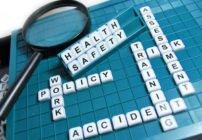Battling an illness can feel like a never-ending task. Rehabilitation needs not to be constant and with consideration for where you are at post-illness. Moving on physically can take a toll mentally, and moving forward can be the best option to change your life.
Whether you’re bouncing back from an intense workout, dealing with an injury, or just feeling run down, being able to help yourself when it comes to your recovery is so important – and it’s not just about resting (although that is important) – there are plenty of things you can do to help your body get better, no matter what’s happened. With that in mind, let’s take a look at your options – read on to find out more.
Prioritize Rest And Sleep
It’s easy to overlook the power of a good night’s sleep when you’re busy or focused on just trying to get through the discomfort you’re feeling, but rest and sleep are really what’s at the heart of recovery. The fact is that when you sleep, your body goes into repair mode, so it’s able to heal tissues, strengthen your immune system, and give you your energy levels back. If you’re not getting enough good quality sleep, it’s harder for your body to recover from anything and everything, like stress, injuries, or even simple daily activities (as we get older, they can get harder).
You’ll want to aim for around seven to nine hours of sleep a night, and if you’re trying to recover from something don’t be surprised if you need a little (or a lot) more. Plus, it’s not just about how much you sleep – quality matters just as much. Create a sleep routine that helps you wind down, such as limiting screen time before bed and keeping your room cool and dark. Do that and you’ll see soon how a rested body can heal lot better and faster.
Stay Active (But Don’t Overdo It)
While rest is crucial, if you’re completely inactive that’s not always going to help either – it might make your muscles hurt even more, for example. That’s why light, gentle movement can actually help make recovery quicker by increasing your blood flow and delivering oxygen and nutrients to the right places. What could you do? Well, activities like walking, stretching, yoga, and so on could all be handy.
Behind everything you do when you’re recovering from something is the idea that you need to listen to your body so you can avoid anything that causes pain or discomfort. You’ll clearly want to heal, but trying to do it too fast is just going to make things worse, so if you need to slow down, make sure that’s what you do.
Consider Pain Relief
One of the biggest issues when it comes to recovery is the pain that can sometimes come from it, which is why it’s often a good idea to explore various different methods for pain relief – there’s absolutely no shame in it, and if it means you can recover more easily (because you can move around more or sleep better, for example), then it’s certainly a good route to take.
There are traditional painkillers, of course, but you could also think about alternative ideas like Delta 8 gummies from https://mypaincenter.com/ for example. Of course, everyone’s different, and what works for one person might not work for another, which is why it’s not a bad idea to try different ideas and see what works for you.
Focus on mental health
Your mental health is just as important as your physical health, and you are allowed to have feelings about what you have been through. Talking it through with therapists or your family can be a good release and help you express how you feel.
If you cannot process your illness and the changes to your life, you might find that your recovery stalls while you address how you feel and adjust to your new life.
Talk to your doctor if you feel you might be depressed or you are struggling with your recovery. They can help you to support your mental health, which in turn will support your physical recovery.
Be Realistic
Don’t force yourself to recover quickly, especially if you have had a prolonged illness and have been virtually bedbound. Your body will have been through a trauma, and you need to think about the strain this can have on you and the chances of relapse if you push yourself too hard.
Recovery is a journey, and it takes as long as your body needs to make the necessary improvements. Take it one day at a time. Allow yourself to rest and pay attention to any new pain or strain to avoid causing more damage. It might not take a week or even a few months, so be realistic about what your recovery entails and the appropriate time it can take you.
Take care of yourself and avoid forcing yourself to do too much too soon. Building your strength slowly and consistently is the best way forward after a long illness.
Related Posts
- 3 Ways An Accident Can Affect You
Everywhere you look are adverts on how to claim for compensation if you’re ever in…
- Health & Fitness
Food FactsDiet & Nutrition Mind & Body Exercise & Fitness
- 3 Superfoods That Promote Long Term Health
There is an old saying that goes 'you are what you eat'. Nearly everybody knows…


















